See Part 1.
The Holy Spirit & Tongues
Many Pentecostals I have known over the years have used the book of Acts to argue that the initial sign one has received the Holy Spirit (which often in their reckoning occurs separately from salvation itself) is speaking in tongues. In evidence of this they trot out Acts 2, Acts 10 (Cornelius & friends, which may be the name of my next fake band) and the folks in Ephesus in Acts 19. In each case the Holy Spirit descends and people start speaking in tongues.
But what about the people in 4:31? Or the Samaritans in 8:14-17? Or Paul in 9:17-19? Or even the 3000 who were saved in Acts 2? There may even be more. My point is that less than half the time the Holy Spirit shows up results in speaking on tongues. For my money, I need a better percentage than that to convince me that Luke was trying to make that connection.
Now I know that some will argue, for instance, that Paul did speak in tongues; he says as much in 1 Corinthians 14. But that’s not the issue. All of these people could have ended up speaking in tongues. The question is regarding Luke’s intent- was he trying to demonstrate that the initial sign of the reception of the Holy Spirit was speaking in tongues? If that were his goal, I think we’d see a better “success rate.”
The Role of the Spirit in Acts
Now, the Holy Spirit plays an important role in the book of Acts, so much so that some have argued we should title the book “The Acts of the Holy Spirit” rather than “The Acts of the Apostles.” Besides tongues, the Spirit gives direction for ministry (8:29, 13:2), inspires prophecy (11:28, 21:11) and even transports Phillip (8:39). But the single biggest role of the Spirit is to empower people to witness (1:8).
Connected to this is the theme of boldness which comes through the Holy Spirit (why isn’t this the initial sign of the Spirit?), both explicitly stated (end of chapter 4) and implicitly (Stephen is quite bold in his speech). The point is that the Spirit is the One who empowers God’s people to witness. The Spirit drives the mission of the church in Acts.
The Spread of the Gospel
Whatever else one says about the book of Acts, the main point of the book comes down to the spread of the gospel. Pretty much everything else that happens feeds into this theme. The Holy Spirit empowers witnesses to spread the gospel (1:8). The miracles seen accompany the preaching of the gospel. Persecution (as noted in Part 1) is a vehicle for spreading the gospel. The conversion of Saul isn’t simply a cool story, but catipults the Gentile mission (Acts 9). The Jerusalem Council validates what God is doing among the Gentiles (Acts 15), and endorses the spread of the gospel to all people. Paul’s trials get him to Rome, where he shares the gospel. Even the episode of Cornelius and friends speaking in tongues in Acts 10 serves to demonstrate that the gospel is spreading to the Gentiles.
So I think that you must read the book of Acts through the lens of the gospel reaching beyond the boundaries of the Jewish people. I also think it’s instructive for us. Whatever else might happen in our churches (the manifest power of the Spirit, life-giving community, contextualizing for the sake of other cultures, etc), the goal is to spread the good news of Jesus Christ and His kingdom.


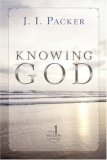
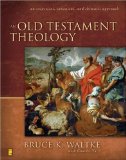



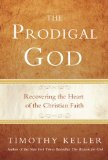
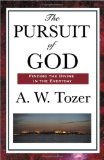
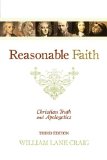

The Internet Amp
Posted in Rants, tagged blog comments, bullying, Dan Brown, flaming, homosexuality, internet, Jennifer Wrist Knust, pornography on Tuesday, February 15, 2011| 1 Comment »
I’ve been around the internet for long enough, well before the days when “state-of-the-art” looked like this (flashing N, we hardly knew ye), so I’m not exactly surprised when I come across articles like Jennifer Wrist Knust’s latest opinion article, which dropped my jaw to levels previously reserved only for Dan Brown. Says Knust about Biblical sexuality, “In Genesis, for example, it would seem that God’s original intention for humanity was androgyny, not sexual differentiation and heterosexuality.” Where to begin?
While I thoroughly disagree with Knust’s methods, evidence and conclusions in myriad ways, I don’t want to just flippantly dismiss her. The reason is because she attempts to thoughtfully engage with an issue (viz. homosexuality): she actually employs (fallacious) methods, offers (shoddy) evidence, and draws (misguided) conclusions. Discussion can thence proceed.
Not so with many of the “comments” posted after her article, and frankly just about any other comment on a widely read post that deals with the Bible, or Christianity. I’ll paraphrase a few that typify the genre:
“The Bible is a bunch of bunk anyway, with not a shred of evidence to prove it.”
“Christianity: One small voice away from murdering your entire family.”
“When will Christians get over the fact that Jesus is a myth? Get out of the dark ages.”
“Why do I care about what a book written 2,000 years ago on the other side of the world says about anything?”
These “comments” ought to irk and embarrass everyone, no matter their world view. It seems that no world view is free of people who give their world view a bad name. Christians certainly have their fair share. Their contributions are noise at best, and the internet, for good or ill, is an amplifier with a very low signal to noise ratio.
It’s easy to recognize the internet as an amplifier of previously existing conditions. For example, there has been bullying in school since school existed. The internet did not give rise to bullying, it has amplified it, indeed creating the whole new category of “cyber-bullying.” There was pornography addiction in the days when the words “personal computer” would have been an oxymoron. The internet didn’t create lust, it has amplified it. So, it should not surprise me (though it still does) to see naked assertions with inflammatory intent following an article. Incendiaries are no new phenomenon.
There is no desire for interaction or real discussion among those who comment. Exchanges between two or more of these people are most often sets of monologues, with no appreciable purpose other than to deride others, and promote oneself; to be heard, regardless of whether there is anything worth listening to.
For some, it seems that their online personality, thanks in large part to the internet’s precious anonymity, is their id: that unrestricted, raw feeling that they might think, but never say to anyone face to face. This just intensifies issues that are already controversial, and highly flammable. The result is greater polarization on issues and less tolerance for opposing viewpoints.
As a Christian, it is disheartening for me to read much of the religious discourse on the internet, especially in the blog-scape. I come away with a (sinful?) feeling of hopelessness: Where to begin? How in the world could I hope to reach people with Christ if this is indicative of their posture towards Him? Despite God’s Word, which reminds me how capable He is of reaching the hardest of hearts (e.g., Paul), I can also take solace in the fact that if I were to turn off the amplifier in between the brazen comment and the commenter, more often than not I’d find a person just as broken and needy as anyone else in the world, one whose company I would probably enjoy, and certainly one who needs redemption just as much as I do.
Read Full Post »